Sheffield Knife Maker Turns Surgical Scalpel into Kickstarter Steak Knife

English custom maker Stuart Mitchell is launching the Skalpel, a blade that turns the classic surgeon’s scalpel into a high-end steak knife.
But, can people stomach the idea of putting an instrument used in surgeries and autopsies on their kitchen table? “This is a knife that always gets a reaction and gets people talking,” acknowledges Skalpel Co-Founder Joe Fitzgerald. “If any audience would get a kick out of the dark side behind this knife, it would be the red-blooded steak eaters of the world.” In their product testing, Mitchell discovered the knife resonated with doctors. “We’ve had lots of emails from surgeons telling us they love the idea and can’t wait to bring them out at their next dinner party.”
Mitchell tells us the Skalpel’s diminutive 2.2-inch edge strips away unnecessary length for the job of cutting meat. “It does have a shorter blade, but it has the same amount of edge where you need/use it on such knives.” On his more conventional custom steak knives, Mitchell began dulling the inch or so of edge closest to the handle after noticing the way users held them in use. “That bit of edge never gets used on a table knife,” he explains. “Go pick up a table knife, by the way you grip [it] that portion of blade is rendered out of bounds.” The Skalpel takes advantage of the traditional scalpel style to do away with that additional length.
Each single piece Skalpel knife is cut from a block of SF100 steel, produced by Outokompu, a steel company headquartered in Espoo, Finland. Mitchell says SF100 performs similarly to AEB-L or RWL34, but is easier to sharpen. “It is perfect for the job of a culinary knife, for the edge it takes, the way it holds that edge, and the serviceability afterward.”
Outokompu produces this particular batch of SF100 locally at their Sheffield facility. In the nineteenth century, Sheffield became the Sölingen or Seki City of England. Recently, however, it has become associated with low-quality knives, as the name “Sheffield” is stamped onto shoddy products to give them an air of quality. “It started to fail because Sheffield, instead of sticking to its guns with quality, attempted to compete with cheaper, imported goods,” Mitchell explains. So for him, locally sourcing a high-performance steel was a key element of the Skalpel project. “There is pride to be gleaned from using a Sheffield made steel once again.”
The Kickstarter for Skalpel went live today. Backer tiers are still being finalized but expect the early bird Skalpel price to sit around £100/$140.
Knife featured in image: Stuart Mitchell Skalpel


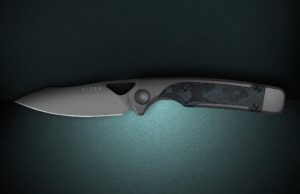
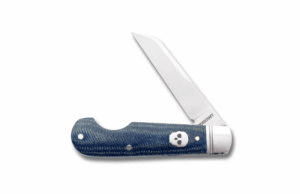
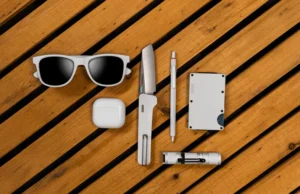
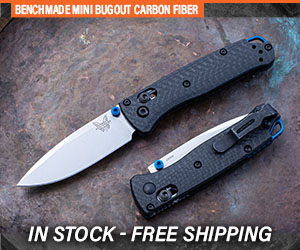
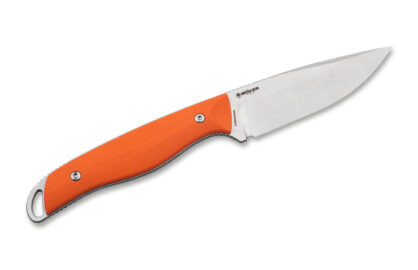




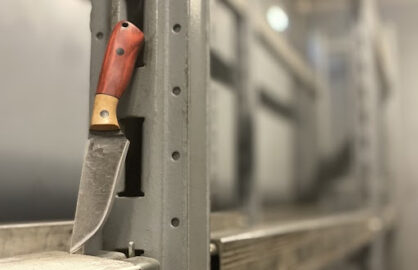

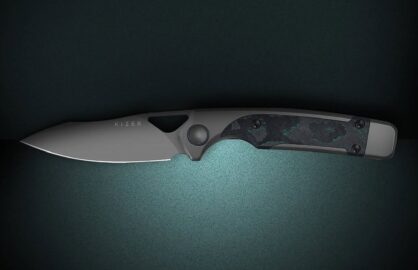
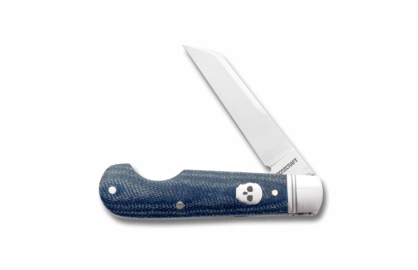
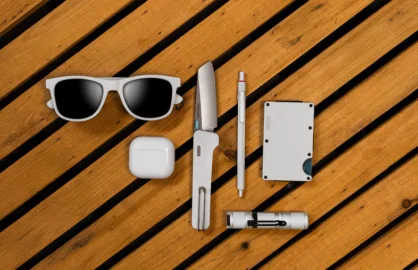
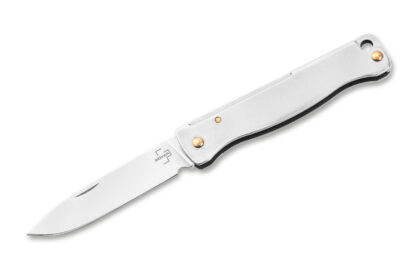
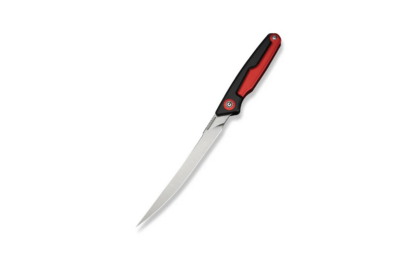



0 comments